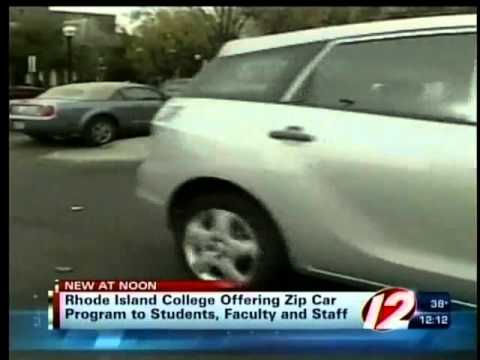Introduction to the topic
Freshman year of college is often a time of transition and newfound independence for many students. As they embark on this new chapter, one question that often arises is whether freshmen are allowed to have cars on campus. At Rhode Island College, a public institution located in Providence, this topic has been a subject of debate and consideration. In this article, we will explore the campus policies regarding freshmen car ownership, the factors influencing these privileges, parking availability for students, transportation alternatives, safety concerns, potential impact on traffic, financial considerations, and the overall student experience. By examining these factors, we can gain a comprehensive understanding of the restrictions on freshman car ownership at Rhode Island College.
Campus policies on freshmen car ownership
Rhode Island College has implemented a policy that restricts freshmen from having cars on campus. This policy is in place to ensure that parking spaces and resources are available for all students, faculty, and staff. By prohibiting freshmen from bringing cars, the college aims to promote a more inclusive and equitable parking system.
Factors influencing freshmen car privileges
Several factors influence the decision to restrict freshman car ownership. One of the primary concerns is the limited availability of parking space on campus. Additionally, the college aims to encourage freshmen to utilize alternative transportation methods and become more integrated into the campus community. These factors, among others, have contributed to the decision to restrict freshman car ownership at Rhode Island College.
Parking availability for Rhode Island College students
Rhode Island College provides parking spaces for students, faculty, and staff. However, due to the limited space available, priority is given to upperclassmen and students with specific needs, such as disabilities. This limited parking availability further supports the decision to restrict freshman car ownership.
Transportation alternatives for freshmen without cars
To ensure that freshmen have access to transportation, Rhode Island College offers various alternatives. The college provides a shuttle service that operates on and around campus, offering convenient transportation for students without cars. Additionally, the college is well-connected to the public transportation system, making it easy for students to travel to and from campus using buses or trains.
Rationale behind restrictions on freshman car ownership
The rationale behind restricting freshman car ownership at Rhode Island College is multi-fold. Firstly, it ensures fair access to parking spaces for all members of the college community. Secondly, it encourages freshmen to fully immerse themselves in the campus experience and utilize alternative modes of transportation. By doing so, they can engage with their peers, explore the campus, and become more integrated into college life.
Safety concerns associated with freshmen car ownership
Allowing freshmen to have cars on campus raises various safety concerns. Freshmen, who are often new to the area, may not have the necessary familiarity with local traffic patterns, road conditions, and parking regulations. This lack of experience and knowledge can increase the likelihood of accidents or safety hazards. By restricting freshman car ownership, Rhode Island College aims to prioritize the safety and well-being of its students.
Potential impact on campus traffic and congestion
Allowing freshmen to have cars on campus could potentially lead to increased traffic and congestion. With limited parking availability, the addition of freshman vehicles could further strain the campus parking infrastructure. By restricting freshman car ownership, Rhode Island College can better manage traffic flow and reduce congestion on campus.
Financial considerations for freshmen car ownership
Owning a car comes with various financial responsibilities, such as fuel costs, insurance premiums, parking fees, and maintenance expenses. For many freshmen, these additional financial burdens can be challenging to manage. By prohibiting freshman car ownership, Rhode Island College aims to alleviate some of the financial stress on students and promote a more cost-effective college experience.
Impact on the overall student experience
The restriction on freshman car ownership can have a significant impact on the overall student experience at Rhode Island College. By encouraging freshmen to utilize alternative transportation methods, the college fosters a sense of community and engagement among students. It promotes interaction, socialization, and the exploration of various aspects of campus life that may otherwise be missed if students were solely focused on commuting in their own vehicles.
Perspectives of Rhode Island College administration
The administration at Rhode Island College views the restriction on freshman car ownership as a necessary measure to ensure the overall well-being, safety, and inclusivity of the college community. They believe that by providing transportation alternatives and limiting parking availability, freshmen can have a more holistic college experience and fully engage with the campus community.
Conclusion and final verdict on freshman car ownership
In conclusion, Rhode Island College prohibits freshmen from having cars on campus to prioritize parking availability, promote alternative transportation methods, ensure safety, manage traffic, and relieve financial burdens. While some freshmen may initially view this restriction as a limitation, it ultimately contributes to a more equitable and inclusive campus environment. By embracing transportation alternatives and fully immersing themselves in campus life, freshmen can make the most of their college experience at Rhode Island College.





